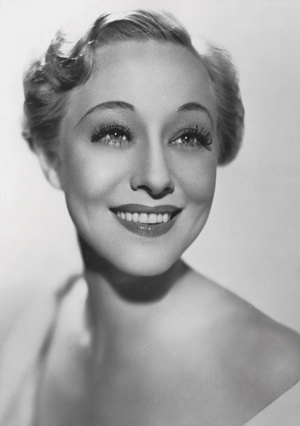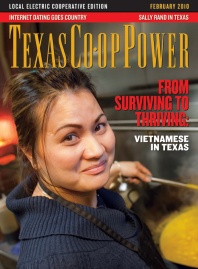News that Sally Rand would come to Texas for the Fort Worth Frontier Centennial Exposition in 1936 was met with outrage by some and curiosity by many. Her reputation, gained at the 1933 Chicago World’s Fair, preceded her.
Rand was a burlesque dancer who didn’t like to be called a stripper. In Chicago, she was arrested four times in a single day because of a Lady Godiva act she performed on horseback on the streets to bring attention to the Sally Rand Nude Ranch at the fair. The charges were dropped because authorities could not actually prove that she was nude, and she insisted she was not. Perhaps coincidentally, and perhaps not, the Chicago World’s Fair was one of the few that actually showed a profit during that time.
Though she had no way of knowing it, Rand became part of the not-always-friendly rivalry between Fort Worth and its neighbor, Dallas, which was staging an edifying affair for its own centennial of the birth of the Texas Republic. Amon Carter, the Fort Worth newspaper publisher and city booster, decided to go another route with his city’s celebration. “Go Elsewhere For Education, Come to Fort Worth For Entertainment” read the billboards, thousands of them, spread over several states.
Aside from the slogan, the billboards showed scantily clad young women cavorting about in a Western setting. Among the people so intrigued by the billboards to change a road trip itinerary was Ernest Hemingway, who reportedly was driving from Wyoming to Memphis, Tennessee, when he saw them and headed for Fort Worth instead.
The centerpiece of the Fort Worth Exposition was the musical revue Casa Mañana, (House of Tomorrow) which was directed by Broadway’s Billy Rose at a time when he was most famous for being married to Ziegfeld Follies comedy and music star Fanny Brice.
The idea of bringing Rand to Fort Worth began with Rose denouncing her during an impromptu press conference announcing his involvement in Casa Mañana. Rose promised that his show would have “neither nudity or smut” and added, “we don’t need any fans or bubble dances at the Texas Frontier Celebration.”
Later, Carter asked Rose what he was talking about and Rose told him about Rand’s fan dance and bubble dance, which she had performed at the Chicago World’s Fair. Carter asked if the show drew a lot of people, and Rose assured him that it did. That’s when Carter decided that Texas needed Rand to help celebrate its heritage.
Born Harriet Helen Gould Beck in Missouri in 1904, the girl who grew up to be Sally Rand was one of those kids who dreams of running away to join the circus and actually did so. For a time she went under the name Billie Beck, but Cecil B. DeMille, reportedly inspired by a Rand McNally atlas, had her change it to Sally Rand.
In the book Amon: The Texan Who Played Cowboy For America, author Jerry Flemmons describes the scene at Sally Rand’s Nude Ranch this way: “Each girl wore boots and hat, a green bandana, skirtlet, tights, and the brand ‘SR’ rubber-stamped on each fleshy thigh. The ‘show’ consisted of girls lounging on swings and beach chairs. Some played with a beach ball. Others shot bows and arrows. One or two sat on horses.”
Sally performed a “Ballet Divertissement” in Casa Mañana, alternating between balloons and fans for a certain amount of discretion. She always said, “The Rand is quicker than the eye” in explaining how she managed to keep audiences from seeing anything she didn’t want seen.
Reviews of Casa Mañana in the national press sometimes bordered on the ecstatic. Flemmons’ book includes this syndicated newspaper column excerpt from journalist Damon Runyon: “Broadway and the Wild West are jointly producing what probably is the biggest and most original show ever seen in the United States. If you took the Polo Grounds and converted it into a café and then added the best Ziegfeld scenic effects, you might get something approximating Casa Mañana.”
Three years later, Runyon still seemed to be pining for the Fort Worth extravaganza. He summed up the 1939 New York World’s Fair with, “No runs, no hits, no Carters.”
No Sally Rands, either.
——————–
Clay Coppedge is a frequent contributor to Texas Co-op Power’s Footnotes in Texas History.


